The Double Life of Veronique (French: La double vie de Véronique, Polish: Podwójne ?ycie Weroniki) is a 1991 French-Polish-Norwegian drama film directed by Krzysztof Kie?lowski and starring Irène Jacob. Written by Kie?lowski and Krzysztof Piesiewicz, the film explores the themes of identity, love, and human intuition through the characters of Weronika, a Polish choir soprano, and her double, Véronique, a French music teacher. The two women do not know each other, and yet they share a mysterious and emotional bond that transcends language and geography.
| The Double Life of Veronique | |
|---|---|
Promotional poster | |
| Directed by | Krzysztof Kie?lowski |
| Produced by | Leonardo De La Fuente |
| Written by |
|
| Starring |
|
| Music by | Zbigniew Preisner |
| Cinematography | S?awomir Idziak |
| Edited by | Jacques Witta |
Production company |
|
| Distributed by | Sidéral Films (France) Miramax (United States) |
Release date |
|
Running time | 98 minutes |
| Country | France, Poland, Norway |
| Language | French, Polish |
| Box office | $2 million (USA) |
The Double Life of Veronique is notable for S?awomir Idziak's innovative cinematography and Zbigniew Preisner's operatic score. The film was Kie?lowski's first to be produced partly outside his native Poland. It won the Prize of the Ecumenical Jury and the FIPRESCI Prize at the 1991 Cannes Film Festival for Krzysztof Kieslowski, and the Best Actress Award for Irène Jacob. The Double Life of Veronique was selected as the Polish entry for the Best Foreign Language Film at the 64th Academy Awards, but was not accepted as a nominee.
Screenplay
In Poland in 1968, a little girl is shown the stars in the winter sky by her mother, who identifies the Christmas Eve star. In France, a little girl is shown one of the first leaves of spring by her mother, who points out the fine veins running through.
In Poland in 1990, a young Polish woman named Weronika (Irène Jacob) is singing at an outdoor concert with her choir when a sudden downpour causes the singers to rush for cover. After Weronika holds the last note alone, she meets her boyfriend, Antek (Jerzy Gudejko), and they go to his apartment to have sex. The next day she asks her father to tell Antek she is leaving to be with her sick aunt in Kraków. She tells him that lately she feels she's not alone in the world.
Weronika travels to Kraków by train looking out at the passing landscape through a small clear rubber ball. At her aunt's house, Weronika talks about her boyfriend, then meets a friend at a concert rehearsal. As the choir rehearses, Weronika, who is watching offstage, accompanies them in her soprano voice. Afterwards, the musical director asks her to audition. Overjoyed, Weronika rushes home with the sheet music. On the way, she passes through Main Market Square, where a protest rally is in progress. One protester runs into her, causing her to drop her music folder. After retrieving the sheet music, Weronika notices a French tourist taking photos of the protestors—a young woman who looks exactly like her. Weronika smiles as she watches her double board the tourist bus that soon pulls away.
At the audition, Weronika's singing impresses the musical director and conductor, and she is later told that she won the audition. The next day, while on a trolley studying the score, Weronika notices her boyfriend Antek following on his motorbike. When they talk, she apologizes for not returning his calls, and Antek tells her he loves her. Later, while getting dressed for the concert, Weronika presses her face against a window and sees an old woman with shopping bags slowly making her way along the street. That night during the concert, while singing a solo part, Weronika collapses onstage and dies.
In Paris that day, a young French woman named Véronique (Irène Jacob), after sex with her former boyfriend, is overwhelmed with sadness, as if she were grieving. The next day, at the school where she teaches music, Véronique attends a marionette performance with her class about a ballet dancer who breaks her leg and then turns into a butterfly. She then leads her class in a musical piece by an eighteenth-century composer, Van den Budenmayer—the same piece performed by Weronika when she died. That night while driving home, she sees the puppeteer at a traffic light motioning to her not to light the wrong end of her cigarette. Later she is awakened by a phone call with no one speaking, but in the background she hears a choir singing the music of Van den Budenmayer. The next day, Véronique drives to her father's house where she reveals she is in love with someone she doesn't know, and that recently she felt she was alone—that someone was gone from her life. Back in Paris, she receives a letter containing a shoelace, which she compares to her EKG graph, and a stranger shines light on her using a mirror.
Véronique learns that the puppeteer is a children's book author named Alexandre Fabbri (Philippe Volter), whose marionette story was based on his book Libellule & Papillon. One of his other books is about a shoelace. In the coming days, Véronique reads several of Alexandre's books. When Véronique visits her father, he gives her a package addressed to her containing a cassette tape. When she's alone, she listens to the mysterious recording of a typewriter, footsteps, a door opening, a train station, and a fragment of music by Van den Budenmayer. There are also sounds of a car accident and explosion. The postage stamp on the envelope leads Véronique to a Gare Saint-Lazare train station cafe where she believes the cassette recording was made. There she sees Alexandre sitting by himself, as if waiting for her. He tells her he's been waiting for her for two days, that he's working on a new book, and that this was a kind of experiment to see if she would come to him. Angered at being manipulated, Véronique leaves and takes a taxi to a nearby hotel, After checking in, she sees Alexandre, who apparently ran after the taxi. He asks for her forgiveness, and she brings him up to her room, where they both fall asleep. During the night, he confesses his love for her and they become sexual partners.
The next morning she tells him, "All my life I've felt like I was here and somewhere else at the same time." While looking at a proof sheet of photos taken on Véronique's recent trip to Poland, Alexandre notices what he thinks is a photo of Véronique, but she assures him it is not her, that she in fact took the photo—of a young Polish woman carrying a music folder. Later at his apartment, Véronique sees Alexandre working on a new marionette with her image. When asked about the purpose of a second identical marionette, Alexandre explains, "I handle them a lot when I perform. They get damaged easily." He shows her how to work the one marionette while the double lies lifeless on the table.
Some time later, Alexandre reads his new book to Véronique about two women, born the same day in different cities, who have a mysterious connection. Later that day, Véronique arrives at her father's house, stops at the front gate, and reaches out and touches an old tree. Her father, who is inside the house, seems to sense this without seeing it.
- Irène Jacob as Weronika, and Véronique
- Halina Gryglaszewska as The Aunt
- Kalina J?drusik as The Gaudy Woman
- Aleksander Bardini as The Orchestra Conductor
- W?adys?aw Kowalski as Weronika's Father
- Guillaume De Tonquédec as Serge
- Jerzy Gudejko as Antek
- Philippe Volter as Alexandre Fabbri
- Sandrine Dumas as Catherine
- Janusz Sterninski as The Lawyer
- Louis Ducreux as The Professor
- Claude Duneton as Véronique's Father
- Lorraine Evanoff as Claude
- Gilles Gaston-Dreyfus as Jean-Pierre
- Chantal Neuwirth as The Receptionist
- Alain Frérot as The Postman
- Youssef Hamid as The Railroader
- Thierry de Carbonnières as The Teacher
- Nausicaa Rampony as Nicole
- Boguslawa Schubert as The Woman in the Hat
- Jacques Potin as The Man in the Gray Coat
Filming style
The film has a strong fantasy element, though the supernatural aspect of the story is never explained. Like the later Three Colors: Blue, it showcased Preisner's musical score as a major plot element, crediting his work to the fictional Van den Budenmayer. The cinematography is highly stylized, using color and camera filters to create an ethereal atmosphere; the cinematographer, S?awomir Idziak, had previously experimented with these techniques in one episode of Dekalog, and Kie?lowski would later use color for a wider range of effects in his Three Colors trilogy. Kie?lowski had earlier used the idea of exploring different paths in life for the same person, in his Polish film Przypadek (Blind Chance), and the central choice faced by Weronika/Véronique is based on a brief subplot in the ninth episode of Dekalog.
Filming locations
The film was shot at locations including Clermont-Ferrand, Kraków and Paris.
Alternative ending
A Criterion Collection region 1 DVD was released in November 2006 in the United States and Canada, which includes an alternative ending which Kie?lowski shot at the request of Harvey Weinstein of Miramax for the American release. Kie?lowski added four brief shots to the end of the film showing Véronique's father emerging from the house and Véronique running across the yard to embrace him. The final image of the father and daughter embracing is shot from inside the house through a window.
The film was scored by Zbigniew Preisner. In the film his music is described as being by Van den Budenmayer, a fictitious eighteenth-century Dutch composer created by Preisner and Kie?lowski for attributions in screenplays. Music "by" the Dutch composer plays a role in two other Kie?lowski films: Dekalog (1988), and Three Colors: Blue (1993) in which a theme from his musique funebres is quoted in the Song for the Unification of Europe. Its E minor soprano solo is prefigured in Weronika's final performance.
The puppet acts in The Double Life of Veronique were performed by American puppeteer and sculptor Bruce Schwartz. Unlike most puppeteers who usually hide their hands in gloves or use strings or sticks, Schwartz shows his hands while performing.
Critical response
The Double Life of Veronique received mostly positive reviews. In her review in Not Coming to a Theater Near You, Jenny Jediny wrote, "In many ways, The Double Life of Veronique is a small miracle of cinema; ... Kieslowski’s strong, if largely post-mortem reputation among the art house audience has elevated a film that makes little to no sense on paper, while its emotional tone strikes a singular—perhaps perfect—key."
In his review in The Washington Post, Hal Hinson called the film "a mesmerizing poetic work composed in an eerie minor key." Noting that the effect on the viewer is subtle but very real, Hinson concluded, "The film takes us completely into its world, and in doing so, it leaves us with the impression that our own world, once we return to it, is far richer and portentous than we had imagined." Hinson was particularly impressed with Jacob's performance:
This is an actress with an uncanny openness and vulnerability to the camera. She's beautiful, but in a completely unconventional way, and she has such changeable features that our interest is never exhausted. What's remarkable about her performance is how quiet it is; as an actress, she seems to work almost off the decibel scale. And yet she is remarkably alive on screen, remarkably present. She's a rare combination—a sexy yet soulful actress.
In her review in The New York Times, Caryn James wrote, "Veronique is poetic in the truest sense, relying on images that can't be turned into prosaic statements without losing something of their essence. The film suggests mysterious connections of personality and emotion, but it was never meant to yield any neat, summary idea about the two women's lives."
In his review in the Chicago Sun-Times, Roger Ebert wrote, "The movie has a hypnotic effect. We are drawn into the character, not kept at arm's length with a plot." Ebert singled out S?awomir Idziak's innovative use of color and cinematography:
Watch movie The Double Life Of V%c3%a9ronique online on Amazon
Watch movie The Double Life Of V%c3%a9ronique online
Watch The Movie On PrimeNaach Utha Sansar Full HD Movie Download
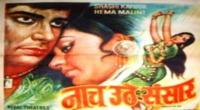
Kathputli (1957) Full HD Movie Download
.jpg)
Chhota Sa Ghar Full HD Movie Download

Haunted Full HD Movie Download

Modala Sala Full HD Movie Download

Loaded Full HD Movie Download

Police Inspector Full HD Movie Download

Lonavla Bypass Full HD Movie Download

Nevada Heat Full HD Movie Download

Dharmam Thalai Kaakkum Full HD Movie Download

Chenna Kesava Reddy Full HD Movie Download

Ravi I Love You Full HD Movie Download
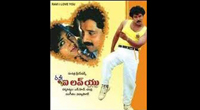
Street Fighter Full HD Movie Download
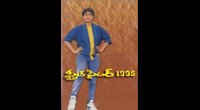
Ayanagaru Full HD Movie Download
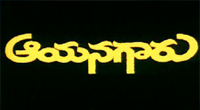
Maha Purushudu Full HD Movie Download

Maro Seetha Katha Full HD Movie Download
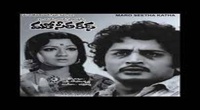
Triloka Sundari Full HD Movie Download
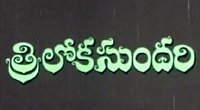
Security Full HD Movie Download

Aakhri Baazi Full HD Movie Download

Mujhse Dosti Karoge Full HD Movie Download

Ek Tha Tiger Full HD Movie Download

Download latest Movie from bollywood
- 1> baaghi 3
- 2> THE SKY IS PINK MOVIE FULL STORY AND REVIEW
- 3> Luka Chuppi
- 4> TO ALL THE BOYS I’VE LOVED BEFORE
- 5> Kabir Singh
- 6> Street Dancer 3D
- 7> Simmba
- 8> Gone Girl
- 9> The Girl Who Lived
- 10> Ludo
- 11> DILWALE DULHANIA LE JAYENGE
- 12> GUILTY
- 13> The Godfather
- 14> Adventures of Rusty
- 15> Sooryavanshi
- 16> Satyameva Jayate 2
- 17> Thappad
- 18> Bhool Bhulaiyaa 2
- 19> KGFChapter 2
- 20> Mardaani 2
- 21> Pinjar
- 22> Shivaji maharaj
- 23> Ek Villian 2
- 24> Hungama 2
- 25> Divergent
- 26> Mumbai Saga
- 27> The Internship
- 28> HIT (telugu)
- 29> Panga
- 30> The perfect date
- 31> 16 December
- 32> Gopala Gopala (Telugu)
- 33> Brahmastra
- 34> Gangubai Kathiawadi
- 35> Manmadhudu
- 36> Nenu local
- 37> Mahanati
- 38> Shatamanam bavathi
- 39> Lagaan
- 40> After
- 41> MOM
- 42> Shamshera
- 43> Raguvaran BTech
- 44> Khakee
- 45> The villain
- 46> OM
- 47> Mr. perfect
- 48> Bueatifull mind
- 49> Hichki
- 50> Gabbar Singh
- 51> Jogi
- 52> Before Sunrise
- 53> Before Sunset
- 54> Before Midnight
- 55> The Big Bull
- 56> Top Gun: Maverick
- 57> The Purge
- 58> The Sky is Pink
- 59> Laxmmi Bomb
- 60> Sadak 2
- 61> Sufna
- 62> Prithviraj
- 63> PK
- 64> Coolie No 1(2020)
- 65> Black Widow
- 66> Dear Zindagi
- 67> Dil Bechara
- 68> PHIR HERA PHERI
- 69> WAR
- 70> Dostana
- 71> RRR: Roudram Ranam Rudhiram
- 72> Maidan
- 73> Dabbang 3
- 74> Chhalaang
- 75> life as we know it
- 76> SherShaah
- 77> Sandeep Aur Pinky Faraar
- 78> Event Horizon
- 79> 83
- 80> Radhe: Your Most Wanted Bhai
- 81> Gunjan Saxena: The Kargil Girl
- 82> Mr India
- 83> Vivah
- 84> Anokha Bandhan
- 85> Ghost
- 86> Bhoot: Part One - The Haunted Ship
- 87> Haseen Dilruba
- 88> Laal Singh Chaddha
- 89> Qismat
- 90> Rajput
- 91> Drive
- 92> Dil Chahta Hai
- 93> Dil Ki Baazi
- 94> Dil Ka Rishta
- 95> Teesri Manzil
- 96> Dil
- 97> Love Aaj Kal
- 98> Khaali Peeli
- 99> Bunty Aur Babli 2
- 100> Atrangi Re
- 101> Gulabo Sitabo
- 102> Jodi
- 103> Suraj Pe Mangal Bhari
- 104> Deewana
- 105> Attack
- 106> Sardar Udham Singh
- 107> Toofan
- 108> THE LOVEBIRDS
- 109> Jersey
- 110> Ginny Weds Sunny
- 111> Thalaivi
- 112> Shiddat
- 113> Angels vs Zombies
- 114> Koi Mil Gya
- 115> Thank God
- 116> Bhuj: The Pride of India
- 117> Hum Aapke Hain Kaun
- 118> The Platform
- 119> Bird Box
- 120> Roohi Afzana
- 121> Torbaaz
- 122> Nikamma
- 123> World War Z
- 124> Extraction
- 125> Train to Busan
- 126> Life of Pi
- 127> SHAADI MEIN JROOR AANA
- 128> Himmat Aur Mehnat
- 129> To All The Boys: P.S. I Still Love You
- 130> Mimi
- 131> Good Newwz
- 132> Shubh Mangal Zyada Saavdhan
- 133> Raabta
- 134> Harry Potter and the Philosopher's Stone
- 135> Harry Potter and the Chamber of Secrets
- 136> Chhapaak
- 137> War of the Worlds
- 138> Harry Potter and the Prisoner of Azkaban
- 139> Harry Potter and the Goblet of Fire
- 140> MURDER MYSTERY
- 141> Shakuntala Devi
- 142> Bachchan Pandey
- 143> Jayeshbhai Jordar
- 144> Sheer Qorma
- 145> Saina
- 146> 'O' Pushpa I hate tears
- 147> Kedarnath
- 148> MS Dhoni The Untold Story
- 149> Chhichhore
- 150> Badhaai Ho
- 151> Unstoppable
- 152> Oz the Great And Powerful
- 153> The Girl on the Train
- 154> Haathi Mere Saathi 2020
- 155> The Conjuring: The Devil Made Me Do It
- 156> Gandhi Se Pehle Gandhi
- 157> The Song of Scorpions
- 158> Srimanthudu
- 159> Hello Guru Prema Kosame
- 160> Beauty and The Beast
- 161> Black Panther
- 162> Charlie and the Chocolate Factory
- 163> Bole Chudiyan
- 164> Fidaa
- 165> Duvvada Jagannadham
- 166> Bruce Lee: The Fighter
- 167> Hyper
- 168> Yaara
- 169> Red (2020)
- 170> Shivam
- 171> That Is Mahalakshmi
- 172> Nishabdham
- 173> Aashram 2020 web series
- 174> Laxmii
- 175> Mismatched
- 176> STUDENT OF THE YEAR 2
- 177> NAIL POLISH
- 178> Ramprasad Ki Tehrvi
- 179> KAAGAZ
- 180> 12 o Clock
- 181> The Power
- 182> bolo hau
- 183> Tribhanga
- 184> JAMUN
- 185> Madam Chief Minister
- 186> Maasaab
- 187> Aadhaar
- 188> Tanhaji
- 189> Bhaagi 3
- 190> Bhootnath
- 191> MALANG
- 192> Jai Mummy Di
- 193> Haathi Mere Saathi 2021
- 194> Shakeela
- 195> Unpaused
- 196> Annayya
- 197> Vamsoddharakudu
- 198> Mrugaraju
- 199> Narasimha Naidu
- 200> Sankranti
- 201> Manasu Maata Vinadhu
- 202> Anjaane
- 203> Apaharan
- 204> Bachke Rehna Re Baba
- 205> Bewafaa
- 206> Roohi
- 207> Radhe
- 208> Zindagi Khoobsoorat Hai
- 209> Yeh Mohabbat Hai
- 210> Yeh Kya Ho Raha Hai?
- 211> The Tomorrow War
- 212> DehradunDiary
- 213> Meri Shaadi Karaoo
- 214> Matruu Ki Bijlee Ka Mandola
- 215> No One Killed Jesica
- 216> Aag Ka Goola
- 217> Eight Million Dollars
- 218> Three Hundred
- 219> Cats and Dog
- 220> Decoy
- 221> Gold Rush
- 222> You Have Got Mail
- 223> Final Destination three
- 224> Tofan
- 225> Jungle
Request for Download movie The Double Life Of V%c3%a9ronique
- Bollywood movies
- Latest Bollywood movies
- Download all bengali movies
- Download all bhojpuri movies
- Download all english movies
- Download all gujarati movies
- Download all hindi movies
- Download all kannada movies
- Download all malayalam movies
- Download all marathi movies
- Download all oriya movies
- Download all punjabi movies
- Download all tamil movies
- Download all telugu movies
- Bollywood action movies
- Bollywood adventure movies
- Bollywood animation movies
- Bollywood classical movies
- Bollywood comedy movies
- Bollywood crime movies
- Bollywood devotional movies
- Bollywood documentary movies
- Bollywood drama movies
- Bollywood family movies
- Bollywood fantasy movies
- Bollywood historical movies
- Bollywood history movies
- Bollywood horror movies
- Bollywood musical movies
- Bollywood mystery movies
- Bollywood mythological movies
- Bollywood patriotic movies
- Bollywood romance movies
- Bollywood romantic movies
- Bollywood sci-fi movies
- Bollywood social movies
- Bollywood spiritual movies
- Bollywood sports movies
- Bollywood suspense movies
- Bollywood thriller movies
- Bollywood war movies
- Hot actress list
- Hot gujarati actress list
- Hot tamil actress list
- Hot bhojpuri actress list
- Hot assam actress list
- Hot bihari actress list
- Hot jammu and kashmir actress list
- Hot gujarati actress list
- Hot haryana actress list
- Hot konkani actress list
- Hot marathi actress list
- Hot odia actress list
- Hot punjabi actress list
- Hot rajasthani actress list
- Hot kannada actress list
- Hot malayalam actress list
- Hot telugu actress list
- Hot tulu actress list
- Hot Actress list from Indian city
- Hot actress list from ahmedabad
- Hot actress list from alappuzha
- Hot actress list from bangalore
- Hot actress list from bangalore
- Hot actress list from bhopal
- Hot actress list from chandigarh
- Hot actress list from chennai
- Hot actress list from guwahati
- Hot actress list from hyderabad, india
- Hot actress list from indore
- Hot actress list from jaipur
- Hot actress list from kannur
- Hot actress list from kochi
- Hot actress list from kolkata
- Hot actress list from kollam
- Hot actress list from kottayam
- Hot actress list from kozhikode
- Hot actress list from lucknow
- Hot actress list from madurai
- Hot actress list from mangalore
- Hot actress list from mumbai
- Hot actress list from mysore
- Hot actress list from new delhi
- Hot actress list from patna
- Hot actress list from pune
- Hot actress list from thiruvananthapuram
- Hot actress list from thrissur
- Hot actress list from tiruchirappalli
- Hot actress list from vijayawada
- Hot actress list from visakhapatnam
- All Bollywood Movies
- Bollywood Celeb
- >Art Director
- >Audiography
- >Background Music
- >Banner
- >Choreographer
- >Cinematographer
- >Costume Designer
- >Dialogue Writer
- >Director
- >Distributor
- >Editor
- >Executive Producer
- >Hair Stylist
- >Lyricist
- >Music Director
- >Photographer
- >Playback Singers
- >Presenter
- >Producer
- >Production Company
- >Production Designer
- >Screenplay
- >Singer
- >Sound
- >Actor
- >Story Writer
- >Studio
- >Video Director
- >Miscellaneous
- >Publicity (pro)
- >Web Creator
- >Production Labs
- >Publicity Design
- >Publicity Stills
- >Writer
- >Miscellaneous Artists
- >Visual Effects
- >Reporter
- >Music Company
- >Shooting Studios
- >Picturised On
- >Line Producer
- >Co Producer
- >Asst Director
- >Casting Director
- >Cinematography
- >Choreography
- >Dialouge
- >Editing
- >Lyrics
- >Music
- >Story
- >Playback Singer Female
- >Playback Singer Male
- >Actor In A Comic Role (male/female)
- >Child Artiste
- >Ensemble Cast
- >Actor Popular Choice (male)
- >Actor Popular Choice (female)
- >Sa Re Ga Ma Pa Song Of The Year
- >Actor In Supporting Role
- >Actress In Supporting Role
- >Actor In Leading Role
- >Art Direction
- >Actress In Leading Role
- >Sound Recording
- >Costume Design
- >Special Effects
- >Action
- >Actor In A Negative Role
- >Lifetime Achievement Award
- >Cinematic Exellence (director)
- >Cinematic Exellence (male)
- >Cinematic Exellence (female)
- >International Male Icon
- >International Female Icon
- >Actor In A Supporting Role (male)
- >Actor In A Supporting Role (female)
- >Actor In A Comic Role
- >Playback Singer (male)
- >Playback Singer (female)
- >Most Promising Debut (female)
- >Most Promising Debut (male)
- >Most Promising Director
- >Sound Design
- >Lifetime Jodi
- >Marketed Film
- >Jury Award For Best Actor
- >Jury Award For Best Actress
- >Jury Award For Best Film
- >Jury Award For Best Director
- >Playback Singer(male)
- >Lifetime Acheivement Award (male)
- >Excellence Award
- >Jodi Award
- >Performer Of The Year
- >Presented By
 Story of movie The Double Life Of V%c3%a9ronique :
Story of movie The Double Life Of V%c3%a9ronique : 